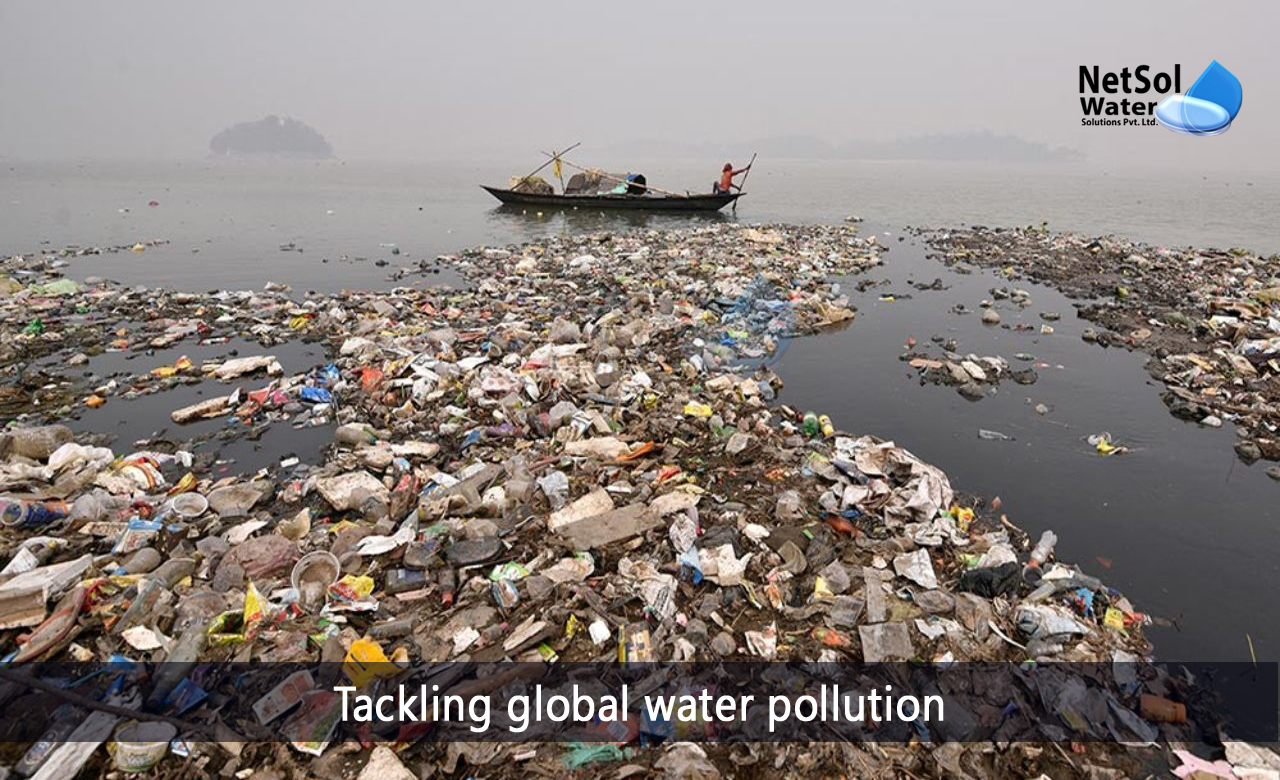How can the world reduce water pollution?
When water becomes contaminated, it is difficult, expensive, and frequently impossible, to remove the pollutants. Even today, approximately 80% of global wastewater is untreated, containing everything from human waste to highly toxic industrial discharges.
The type and quantity of pollutants in freshwater determine its suitability for many human uses, including drinking, bathing, and agriculture. Furthermore, freshwater ecosystem pollution can have an impact on the habitat, and quality of life of fish and other wildlife. As a result, addressing global water pollution is critical.
What is Water Pollution?
Water pollution occurs when harmful substances, most often chemicals or microorganisms, contaminate a stream, river, lake, ocean, aquifer, or other body of water, lowering water quality and making it toxic to humans, or the environment.
What is the source of Water Pollution?
Water is particularly susceptible to pollution. Water, also known as a "universal solvent," can dissolve more substances than any other liquid, on the planet.
Contribution of sewage and wastewater in water pollution
Wastewater is used water. It is mainly produced by sinks, showers, toilets, and by commercial, industrial, and agricultural activities. Stormwater runoff refers to when rainfall carries road salts, oil, grease, chemicals, and debris from impermeable surfaces, into our waterways.
More than 80% of the world's wastewater is discharged into the environment without being treated or reused. In India, wastewater treatment plants treat approximately 34 billion gallons of wastewater per day. Before discharging treated waters back into waterways, these facilities reduce the amount of pollutants in sewage, such as pathogens, phosphorus, and nitrogen, as well as heavy metals and toxic chemicals in industrial waste.
Netsol Water : The saviour of the global water
We bring to the table a one-of-a-kind wastewater treatment solution aimed at combating water pollution, throughout India and other nations. We offer a variety of processes such as physical, chemical, and biological processes, to assist industries that struggle to provide enough water to carry out their production and processes.
Our treatment solution serves as a growth engine for businesses at all stages, and our solutions take on responsibility for wastewater management, including investment, operations, maintenance, and compliance, among other things.
Which sectors need advanced wastewater treatment solutions?
|
Agriculture |
Food Processing |
|
Automobile |
FMCG |
|
Cement |
Health Care |
|
Engineering & Construction |
Hospitality |
|
Infrastructure |
IT Services |
|
Manufacturing |
Mining |
|
Power |
Pharmaceuticals |
|
Real estate |
Petroleum & Natural Gas |
|
Steel & Plastics |
Textile |
Types of smart wastewater treatment solutions
Membrane bioreactors (MBRs):These are wastewater treatment systems that combine a biological procedure, most notably a suspended growth bioreactor, with a perm-selective membrane, such as microfiltration or ultrafiltration.
Reverse Osmosis: Reverse osmosis is a method of water purification that uses a thin, semi-permeable membrane with microscopic pores that allows clean water to pass through, while blocking bigger molecules,such as other contaminants and ionised dissolved salts.
Ultrafiltration: It is a pressure-driven purification method that uses an ultrafine membrane medium, to separate particulate debris from soluble chemicals.
Aerobic granular sludge (AGS): AGS is made up of densely packed self-immobilized microbial granules, with a compact microbial structure, a high biopolymer content, and fast settling velocities.
Granular microbial growth improves biomass-water separation, allows for larger biomass concentrations in the bioreactor, and enables simultaneous nitrification, denitrification, and phosphate elimination from wastewater, in a single treatment tank.
Conclusion
Pathogens (mostly from human and animal waste), organic matter (including plant nutrients from agricultural run-off such as nitrogen or phosphorus), chemical pollution, and salinity can all pollute freshwater ecosystems.
Plastic pollution, as well as emerging pollutants like pharmaceuticals, are putting our world's waterways at risk, but the extent and consequences of their presence in our freshwater are largely unknown. Opting advance treatments for tacking water pollution is the only option left with all of us!
How can we assist?
We help you comply with government regulations and rules, regarding the discharge of restricted effluent away from the grounds of your firm. By offering a quick and effective method for treating, recycling, and reusing water for industrial operations, we help ensure that water is used as efficiently as possible.
We commit to saving water and helping the nation's industrial development, in addition to replenishing the available resources.
Netsol Water is Greater Noida-based leading water & wastewater treatment plant manufacturer. We are industry's most demanding company based on client review and work quality. We are known as best commercial RO plant manufacturers, industrial RO plant manufacturer, sewage treatment plant manufacturer, Water Softener Plant Manufacturers and effluent treatment plant manufacturers. Apart from this 24x7 customer support is our USP. Call on +91-9650608473, or write us at enquiry@netsolwater.com for any support, inquiry or product-purchase related query.



